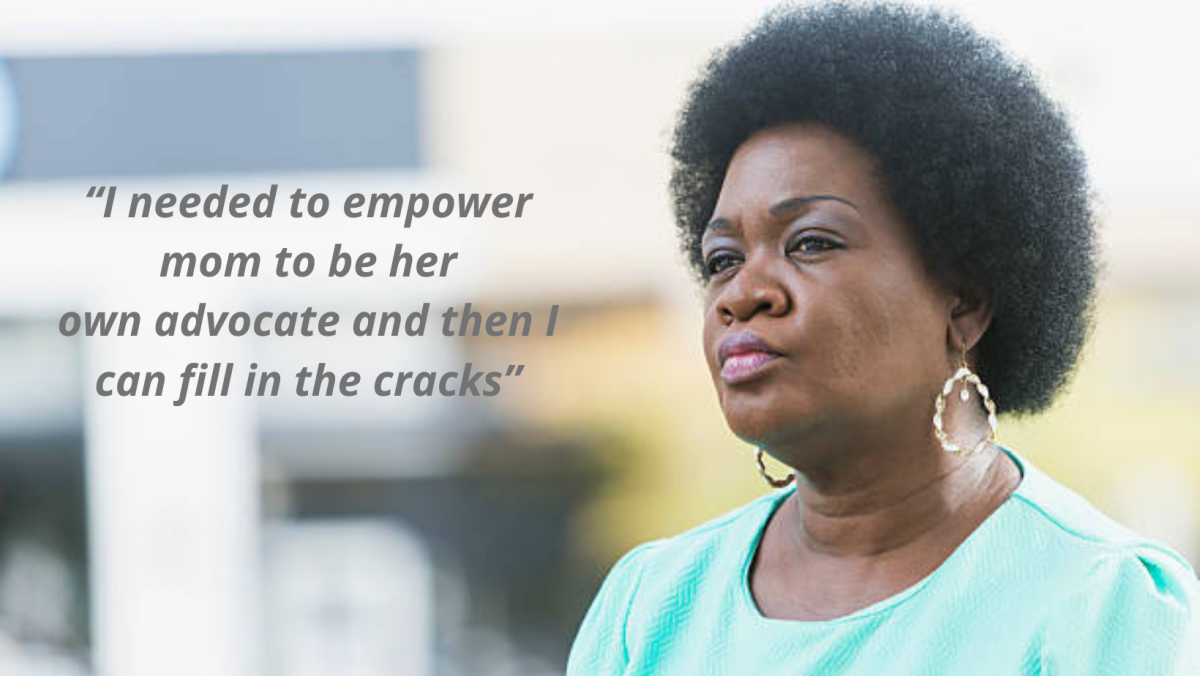

Heart Failure: Staying on the Proper Route
Caring for a loved one with heart failure requires information about their health be tracked, in order to ensure they receive the proper care. Ensuring proper management of care can reduce the number of unecessary hospital visits.
Shared Decision Making
Shared decision making is the process of making decisions about your loved one’s healthcare WITH your loved one, and with their wishes and goals guiding those choices. You, your loved one, and the doctor all have desired outcomes, but your loved one’s should be prioritized, even though others can’t be discounted completely
When arriving at a decision about treatment for your loved one’s heart failure, be sure to ask questions and review the options with the doctor(s). Make the decision that works best for your loved one and your family.
Once a treatment or therapy has been decided on, make sure both you and your loved one fully understand all aspects of it.
Communicating Updates
Anytime your loved one has an update or changes to their care plan or routine, it’s important to update all of those on the care team who provide support. With heart failure, we know that getting to the diagnosis can be tough and getting those in an ER environment to believe the diagnosis can sometimes be even tougher. This is why keeping an up-to-date Patient File is critical with these conditions.
“While true that the squeaky wheel gets the grease, you have to know how to squeak effectively.”
Updating the Patient File: One of the most crucial roles you have as a family caregiver is making sure any changes to your loved one’s health are documented and communicated to the members of the care team. An updated Patient File, with all your loved one’s most current medical records and medication list, is a key part of this.
Important factors to consider:
- Update the Patient File after each medical appointment.
- Let others on the care team know where it is and make them aware of any notable updates.
Who needs to know any updates? When updating your loved one’s patient file, ask yourself, is there any info that needs to be relayed to family and friends or other members of the care team? This can include:
- Friends and Family
- Including neighbors, church members, and other individuals in your loved one’s community who may support in caring for your loved one.
- Healthcare Professionals
- Doctors
- Nurses
- Specialists
- Therapists
- Therapists
Communication Tips for Family Caregivers from Doctors
- Bring notes. Write questions down so you won’t forget them.
- Be clear about what you want to say. Try not to ramble.
- If you have lots of things to talk about, make a consultation appointment, so the doctor can allow enough time to meet with you.
- Educate yourself about your loved one’s disease or disability.
- Learn the routine at the doctors’ office and the hospital so you can make the system work for you, not against you.
- Recognize that not all questions have answers—especially those beginning with “why?”
- Manage your natural anger, which can come from feelings of powerlessness. Do not allow these feelings to create negative interactions with the doctor.
Durable Medical Equipment
What is Durable Medical Equipment (DME)? Durable medical equipment is any medical equipment used in the home to establish a better quality of life. DME often makes keeping your loved one in the home longer a more realistic possibility. Often, these types of devices are covered by insurance, but it is important to check your individual policy.
What types of DME are common for patients with HFpEF? Your loved one’s care plan will take their individual wishes and goals into account. Your loved one’s care plan may include:
“While true that the squeaky wheel gets the grease, you have to know how to squeak effectively.”
Updating the Patient File: One of the most crucial roles you have as a family caregiver is making sure any changes to your loved one’s health are documented and communicated to the members of the care team. An updated Patient File, with all your loved one’s most current medical records and medication list, is a key part of this.
- Heart monitors
- With HFpEF, these monitors may be used with track implants.
- Blood pressure monitor
Ask Questions. Your loved one may be discharged from the hospital with instructions on how to use a piece of DME. Important questions to ask:
- What is the name of the DME?
- What does it monitor?
- How does it turn on/off?
- Is any type of maintenance required, like replacing batteries?
- What do the error messages mean?
- Does a possible error message mean there is an issue with the equipment, or does it signal a medical emergency?
Treat DMEs Like Medications. It is important to “track” your loved one’s DME the same way you track your loved one’s medications:
- Name of DME
- What DME is monitoring
- When is the DME used
- Time of day to check the device
- Frequency of reporting back to medical team
- Who to call for maintenance
- Location of any manuals
